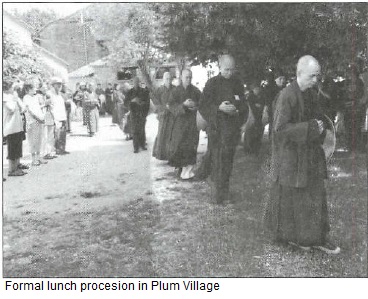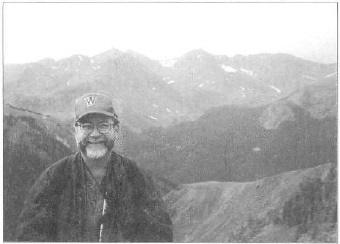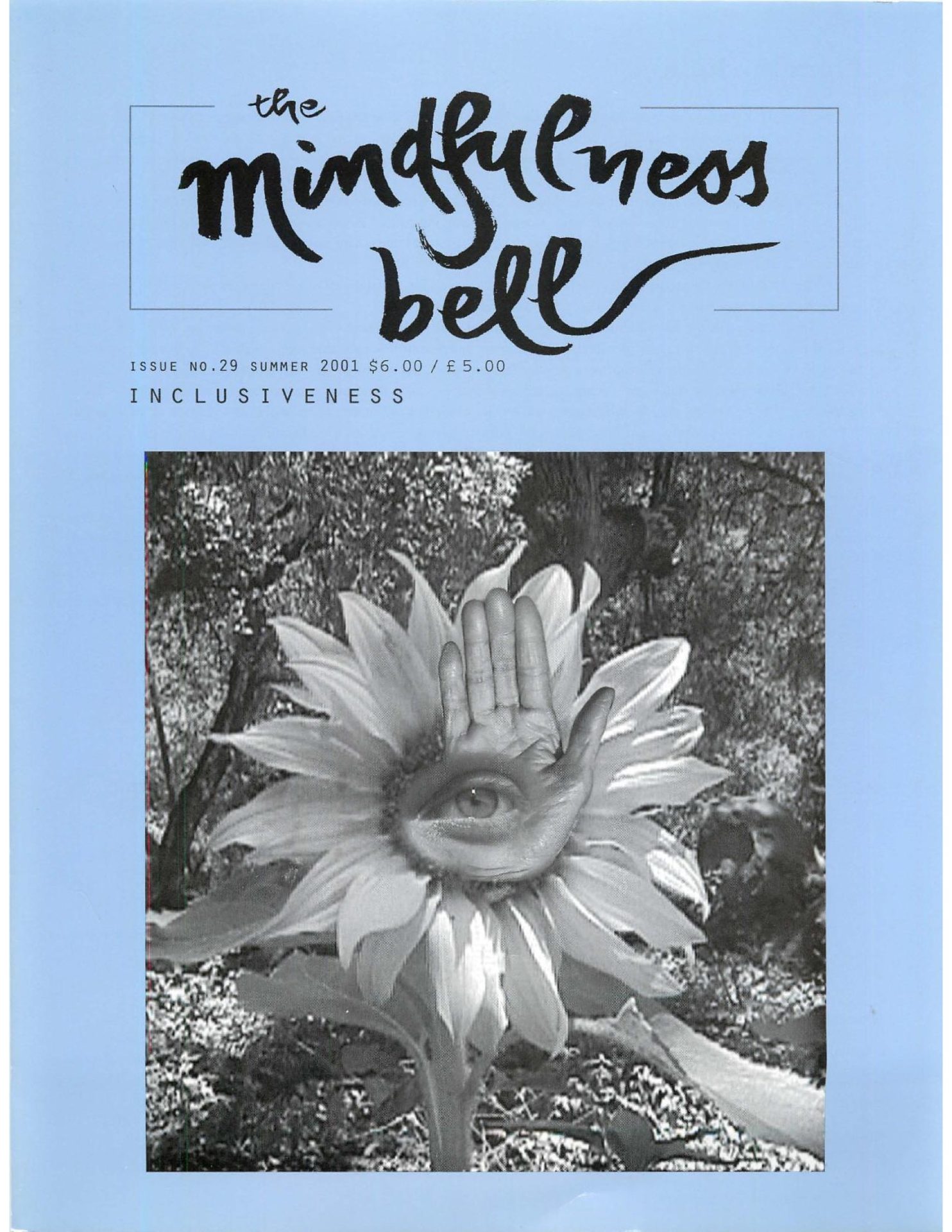By Jack Lawlor
Every day, the Buddha and his Sangha made a morning alms round to beg for food . Each doorstep was approached, and each householder was greeted with a request for food. The householder may have been a king, queen, wealthy merchant, warrior, farmer, laborer, or outcast. As part of each visit, the Buddha and the monastic Sangha would offer a teaching, addressed to the many and varied people encountered in their daily rounds.
By Jack Lawlor
Every day, the Buddha and his Sangha made a morning alms round to beg for food . Each doorstep was approached, and each householder was greeted with a request for food. The householder may have been a king, queen, wealthy merchant, warrior, farmer, laborer, or outcast. As part of each visit, the Buddha and the monastic Sangha would offer a teaching, addressed to the many and varied people encountered in their daily rounds.
The body of teaching we know today as Buddhism - and its wondrous fruits of both wisdom and compassion - is in no small part the result of this inclusive interaction with society. The Buddha ordained people from every portion of society into the monastic Sangha, including the feared criminal , Angulimala. In an equally revolutionary way (for his time), after a period of hesitancy, the Buddha included women into the monastic Sangha.

As the result of this interaction with society, the Buddha and his Sangha learned that suffering is inclusive - every member of society knows the experience of suffering. Early in his teaching career, while pondering how to address the needs of so many different people, the Buddha noticed how the lotus plants in a nearby pond were at such different levels of development. Some were in full bloom, some just below the surface of the water, some still barely more than root systems, and some white, some yellow. Observing this, the Buddha reflected on how people are in different situations, and at different stages of growth and that, as a result, his teachings would have to be many and varied in order to address different backgrounds and circumstances. Today, we call the art of crafting inclusive, responsive teachings "skillful means" - or upaya.
The spiritual inheritance of those who study with Yen. Thich Nhat Hanh includes the wisdom of inclusiveness. The Charter of the Order of Interbeing states that, "To protect and respect the freedom and responsibility of each member of the community, monks, nuns, and laypeople enjoy equality in the Order of Interbeing." The Fourteen Mindfulness Trainings of the Order of Interbeing provide us with a great deal of guidance regarding the importance of letting go of our prejudices and rigid ideologies that thwart our Sangha's ability to embrace others in an inclusive manner. The Second Mindfulness Training of the Order of Interbeing urges us "to avoid being narrow-minded and bound to resent views," including our views of other people. The Third Mindfulness Training suggests that we " respect the rights of others to be different and to choose what to believe and how to decide." The Fourth Training invites us to look deeply and observe how our acts of discrimination cause suffering. We are urged to be committed "to finding ways, including personal contact ... to be with those who suffer, so we can understand their situation deeply and help them transform their suffering into compassion, peace and joy." All the Trainings urge us to develop compassion, reconciliation, and ways to enhance the ability of others to have a chance to live peacefully and happily.
While the wisdom of inclusiveness is soundly included in our spiritual inheritance, each generation of practitioners needs to look deeply into his or her personal practice and into the life of the Sangha to be sure that we are practicing inclusiveness. In The Raft Is Not the Shore, Thay underscores the importance of this deep looking in the context of Sangha when he observes that, "What is important is that you find yourself in a situation where nobody discriminates."
There have been efforts to encourage family practice and to welcome children in our retreats with Thay. A spirit of warmth and tolerance is enjoyed by many who attend Thay's retreats and Sangha Days of Mindfulness. Yet we can continue to use the calm and equanimity afforded by our daily practice of sitting and walking meditation to consider whether there is more we can do to encourage the spirit of inclusiveness in our Sanghas. Do our retreats attract the same wide variety of people encountered each day by the Buddha and the monastic Sangha? The way we conduct ourselves and organize our events and activities may inadvertently hinder our ability to skillfully offer the teachings to others.
For example, we may sometimes lack in understanding the needs of others when structuring our activities. Many people in North America are compelled for economic reasons to work long hours in return for modest pay and limited vacation time. In structuring our national, regional and local Sangha calendars, are we careful to provide retreats and other mindfulness practice opportunities that are accessible and affordable? Do we select places for our local Sanghas to convene where parents can find facilities for childrens' programs? Are we tak ing steps which will lead to the Sangha becoming more multigenerational and multiracial?
Everyone benefits from the practice of inclusiveness. Our Sangha took modest steps to make our presence known on university campuses, and we are now graced by the presence of students from three different schools, one of whose students organ ized their own group practicing in tandem with Lakeside Buddha Sangha. Another Sangha of students has inspired us with its tradition of community service. The freshness and enthusiasm of the students has been a gift to our Sangha. We are now attracting more members from varied racial and ethnic heritages and economic backgrounds.
A key ingredient to long-term success at being inclusive is the quality of our mindfulness practice. If we practice wholeheartedly, others will become curious about the teachings we share and the skillful means we employ. If our practice is not genuine, no amount of advertising will attract others on a sustained basis. I recently received a communication from someone who did not feel included at a large retreat because the person did not observe other people smiling or making eye contact. When our practice is genuine, we are peace and happiness, and no one fails to catch our eye or experience our smile. The next time your smile reflects your joy and peace, you are invited to remember that it is a fruit of centuries of inclusiveness. Please, share this fruit with others.

Jack Lawlor, True Direction, was ordained by Thay as a Dharma Teacher in 1992, and facilitates Lakeside Buddha Sangha in Evanston, Illinois.
Photos courtesy of Plum Village

